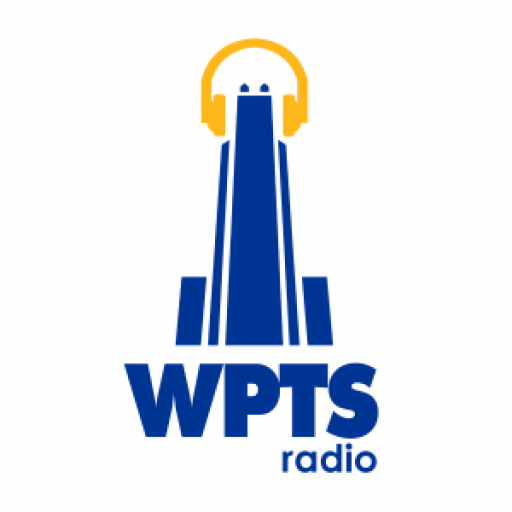Listeners:
Top listeners:
-
play_arrow
WPTS-FM
About
WPTS Radio is an educational, non-commercial FM station owned by the University of Pittsburgh and operated by its students. Located at a frequency of 92.1 in the commercial band of the FM dial, we have a radiating power of 17 Watts, and an effective radiated output of 17 Watts. Our transmitter is located atop the Cathedral of Learning, 530 feet above the ground. This greatly enhances our broadcast radius, which averages about 30 miles.
WPTS Radio entered the Pittsburgh FM market on August 26, 1984 at 6P, the FM status resulting from a long and grueling application process. WPTS Radio itself evolved from WPGH, an AM carrier-current station which broadcast to the Pitt Student Union and dormitories. WPGH began in the fall of 1957, when 12 students formed the Student Broadcasting Association with the intent of starting a college radio station for Pitt. The group was led by Adrian Cronauer, whose experiences in Vietnam are the basis of the movie Good Morning Vietnam. (Not too many stations can say Robin Williams played their founder in a big flick!)
The group was recognized by the University in January of ’58, and they spent the next year trying to get on the air. With help from KQV and KDKA, WPGH tried to go on-air February 9 of 1959 in Schenley Hall on the Pitt campus. Nobody, however, really checked out the wiring and all PGH managed to do was blow out all the lights in Schenley Hall.
WPGH finally got its stuff together in 1961, broadcasting at 820 AM to the Pitt and Carlow campuses via carrier-current transmitters. In 1966, WPGH purchased new transmitters that broadcast at 640 AM and installed new lines (to prevent another explosion) for the Schenley Hall Studios.
The push to get an actual FM station began in the fall of 1977, when WPGH and Pitt’s Student Government Board got together to plan for the switch.
In the Fall of ’78, WPGH approached the Pitt administration for help in the application process, as they felt the FCC never grant a license to a student group. The administration liked the idea, as they realized an operating FM-station functions like a “working classroom”, and certainly enhances the learning experience of the University.
Pitt filed for space on the non-commercial band of the FM dial in ’79, and began to reserve money for the switch to FM, but conflicts arose with other radio stations. The dial was too crowded, and objections from Carnegie Mellon University, Bethany College radio stations and Channel 6 Johnstown froze the application indefinitely.
Since everyone was being so picky about a new station, Pitt hired consultants, and lawyers to see about amending the FM application. What they came up with was pretty bizarre and unusual.
Pitt requested a space on the commercial FM band, and proved to an FCC commission that the WPTS case was unique and not precedent setting (as the FCC was afraid, the WPTS case might be used to get other non-commercial stations on the commercial band.) As a result, WPTS Radio was granted a class D license with a radiating power of 10W, the last 10W station to be licensed by the FCC.
Since its inception, WPTS Radio has established itself as one of the major college radio stations in the U.S. WPTS Radio is an important outlet in the Pittsburgh market for alternative music. We operate 24 hrs/day year round, playing independent rock-n-roll around the clock, as well as specialty programming including jazz, reggae, metal, world music, folk and the city’s award winning rap show. WPTS Radio is serviced by over 200 record labels, and we have a great working relationship with industry representatives. WPTS Radio is also a key player in the Pittsburgh music scene working with all local promoters to support and bring to the city the music we play.
WPTS Radio is a formatted college-radio station, as opposed to a free-form block radio style. We find this works well for two main reasons. First, it gives WPTS a professional sound. While there is a certain merit and a place for college radio stations who follow a more anti-radio outlook (“um, ah, I guess that was Foetus’ latest backwards”), such a view is wrong for WPTS Radio. WPTS was conceived of as a “working classroom”, a means to expose students to the reality of radio. To do so, we try to walk a fine line, broadcasting experimental music while training as professional a staff as possible. DJ’s are trained in “real radio,” and the rotation helps them to see how a “real” station would work. While we avoid that annoying “in your face” hit-radio approach, our jocks are perfect for a more adult-type format. Former WPTS’ers now work for CBS Records, KDKA-TV, WTAE-TV, WYEP-FM and many others.
The rotation provides a varied and interesting experience for listeners. With block programming, listeners will turn off the blocks with which they are unfamiliar. In a rotation, we can challenge our listeners, playing Black Star next to Belle & Sebastian next to William Hooker.
